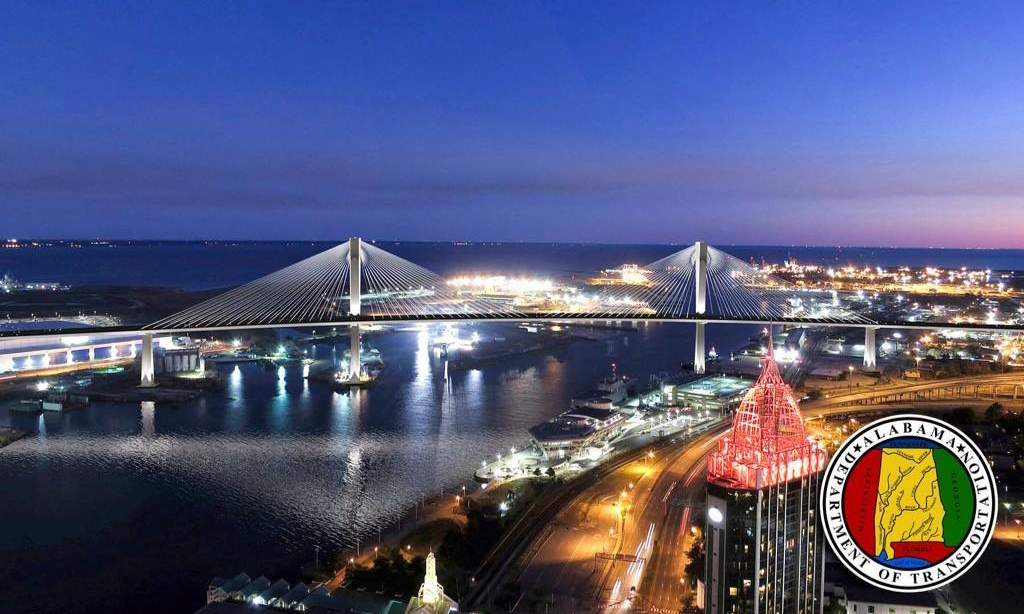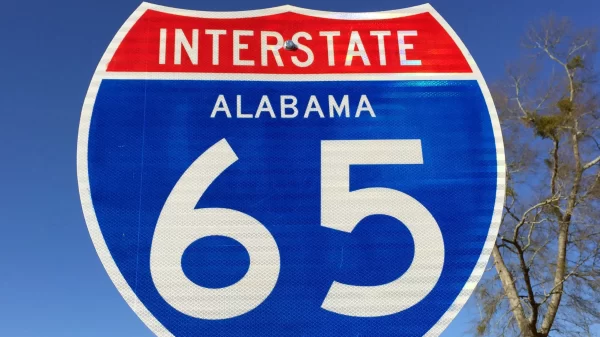Alabama Gov. Kay Ivey called for a meeting of the nine-member Alabama Toll Road, Bridge and Tunnel Authority to discuss the proposal to build the Mobile River Bridge and replace existing I-10 Bayway.
“The most significant obstacle to a new bridge is very simple, money,” Ivey said. “Last week, we were notified that Alabama will receive an Infrastructure for Rebuilding America (INFRA) Grant of $125 million. This allocation is about six percent of the total projected cost of $2.1 billion. Additionally, the project has qualified for over one billion dollars in low-interest debt financing. While this is encouraging news, there doesn’t appear to be any breakthrough in a major new infrastructure bill passing Congress anytime soon. Absent this, we are not anticipating any additional significant federal participation in funding the proposed bridge project for the foreseeable future.”
Ivey said the Alabama Department of Transportation has a plan to build the bridge and Bayway replacement through the use of a Public-Private Partnership. ALDOT’s controversial proposal is to fund this project with a mix of $900 million of equity that would be contributed by ALDOT or concessionaires.
“The exact split remains to be negotiated,” Ivey explained. “The concessionaires would submit proposals to develop the project using over $1 billion of debt financing via USDOT.”
Ivey admitted that there is growing opposition to this plan.
“Many legitimate questions have been raised and deserve answers,” Ivey added. “Unfortunately, a few urban myths have also been spread, which are simply not true.”
The governor said she is sensitive to what the toll wild do “to working families, lower and middle-class individuals, small businesses and students and the elderly.”
“I am also concerned about the cost of doing nothing, which is what some of the opponents to a toll are suggesting,” Ivey said.
The meeting of the Alabama Toll Road, Bridge and Tunnel Authority will be Tuesday, Sept. 17, 2019, at 1:30 p.m. in the auditorium in the Alabama State Capitol.
ALDOT is supposed to update the members of the authority, and there will be an opportunity to hear from other stakeholders who may wish to propose viable options for financing the project.
“I look forward to hearing constructive alternatives and solutions,” Ivey concluded. “I will also be inviting our Federal Delegation to join us for this meeting, as well as all other state and constitutional officers, at least some who seem to believe there is an easy solution out there if we would just look for it. In the end, I remain hopeful that we can work together to find a way to move this project forward.’
Opposition has been joined by a number of public officials including U.S. Sen. Doug Jones, Congressman Bradley Byrne, State Auditor Jim Zeigler, Secretary of State John Merrill, House Speaker Pro Tem Victor Gaston and all of Mobile’s House legislative delegations, every major U.S. Senate candidate. Other opponents include congressional candidates Mobile County Commission President Jerry Carl, State Rep. Chris Pringle, former State Sen. Bill Hightower and Wes Lambert all oppose tolling the people of South West Alabama. The project is opposed by local municipal leaders including Fairhope Mayor Karin Wolff Wilson, Spanish Fort Mayor Michael McMillan and the Spanish Fort town council.
The legislature’s Contract Review Committee on Thursday blocked ALDOT’s contract for outside legal services for the proposed P3 bridge project.

















































